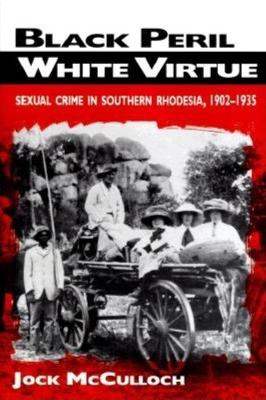In the period from 1902 until the mid 1930s Southern Rhodesia was swept by a series of moral panics. The sexual threat posed by black men to white women, which was known as Black Peril, led in 1903 to the introduction of the death penalty for attempted rape. Over the next decades more than twenty men were executed. Many of those men were innocent of any serious crime. Their fate is a reminder that sexual relations between Europeans and colonial subjects were one of the most problematic features of colonial life. Tension over Black Peril provoked a flood of legislation. Laws were designed to control the sexuality of African men and women and also to curtail the sexual transgressions of white females. While white men were largely immune from censure, white women were trusted neither by their husbands nor by legislators. The morality laws of Southern Rhodesia were founded upon well-defined models of male and female sexuality. African men and women were presumed to be under the sway of uncontrollable impulses. White women were believed susceptible to degeneracy.
In Southern Rhodesia sexual pathology was a broad category, which included Black Peril, miscegenation, concubinage, prostitution and venereal disease. The ways in which the state and civil society responded to those controversies was important in establishing the boundaries of race, class and gender. The controversies were also relevant to the exercise of the most fundamental of bourgeois rights the legitimate claims of men to property in the bodies of women and the rights of citizenship. The panics were both an expression of the problems of constructing a white identity and a means by which it was achieved. The moral panics were driven by fear, and the desire for the retribution and cleansing. They also involved very real demonstrations of state power. The panics served the interests of the white community by dramatising the dangers it faced thereby giving it some leverage against its enemies. But as the history shows those gains only came at a price. This is the first full-length study of the Black Peril. The book will be of interest to specialists working in African history, cultural and postcolonial studies, social theory, sociology, politics and social anthropology.
- ISBN10 0253337283
- ISBN13 9780253337283
- Publish Date 22 July 2000
- Publish Status Out of Print
- Out of Print 26 November 2013
- Publish Country US
- Imprint Indiana University Press
- Format Hardcover
- Pages 288
- Language English
